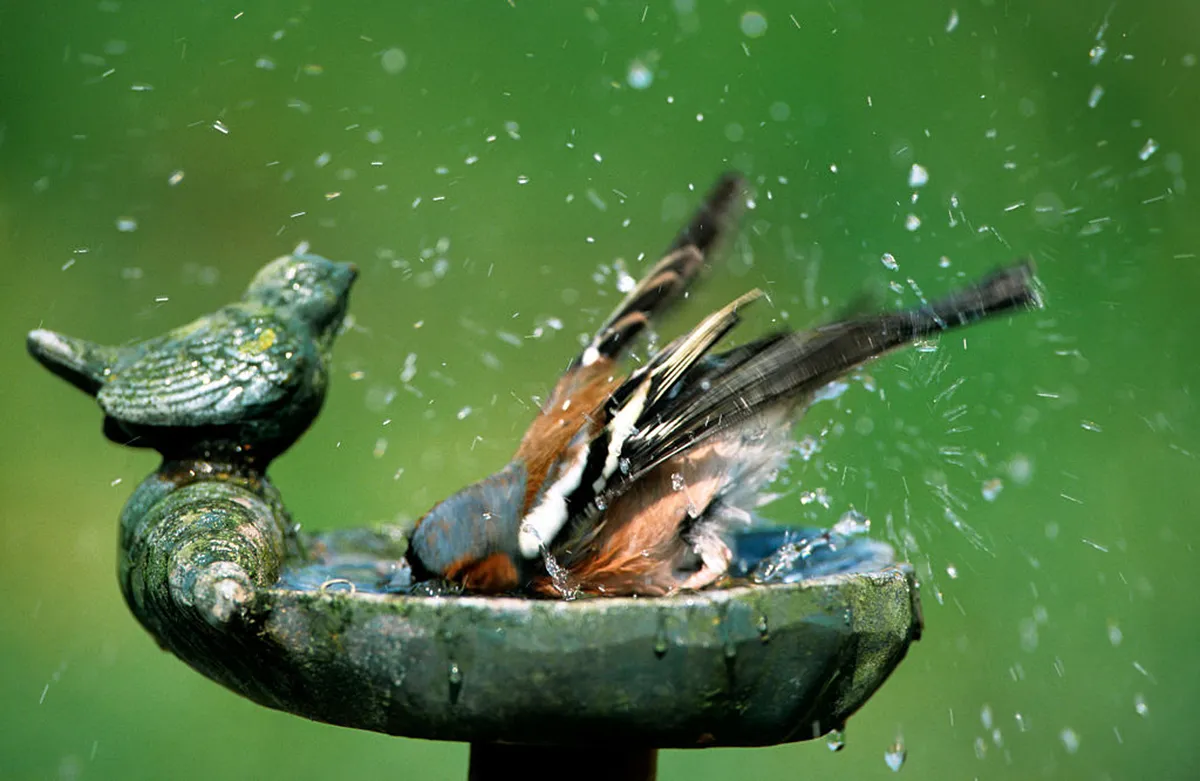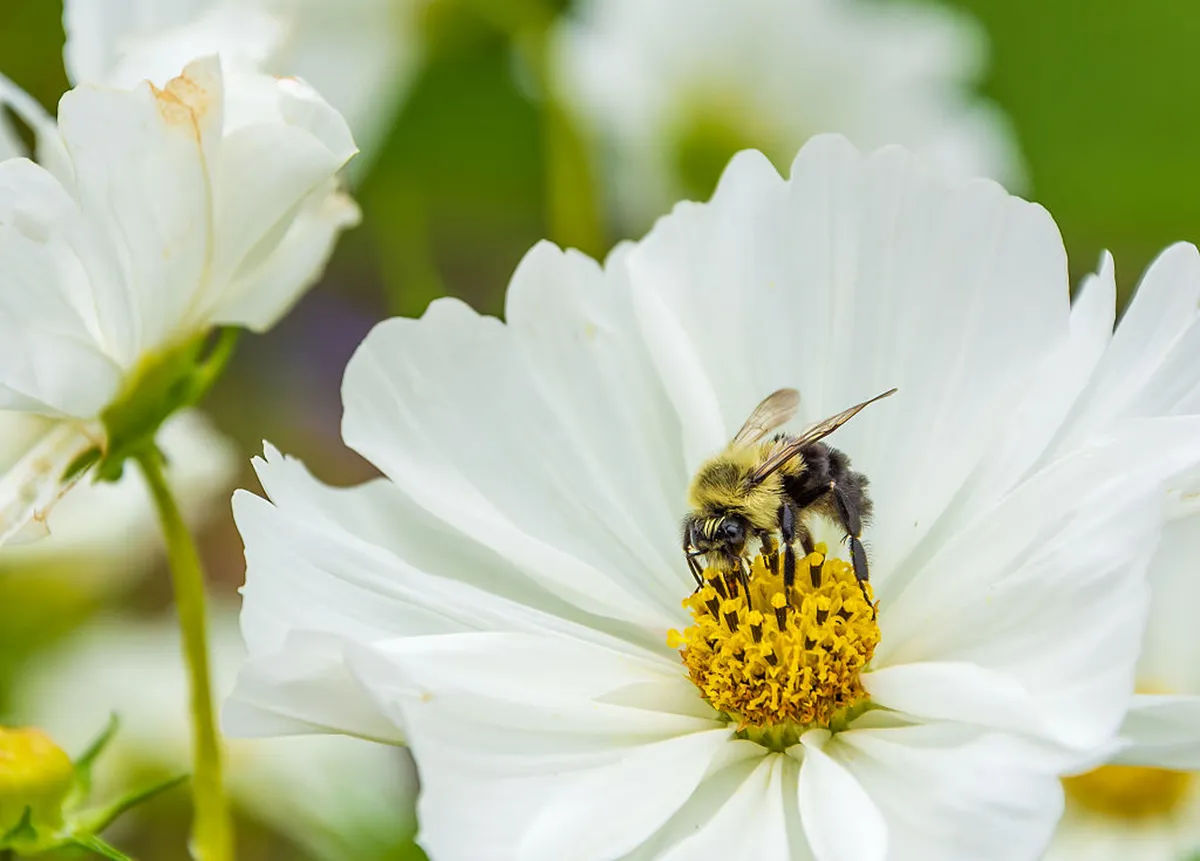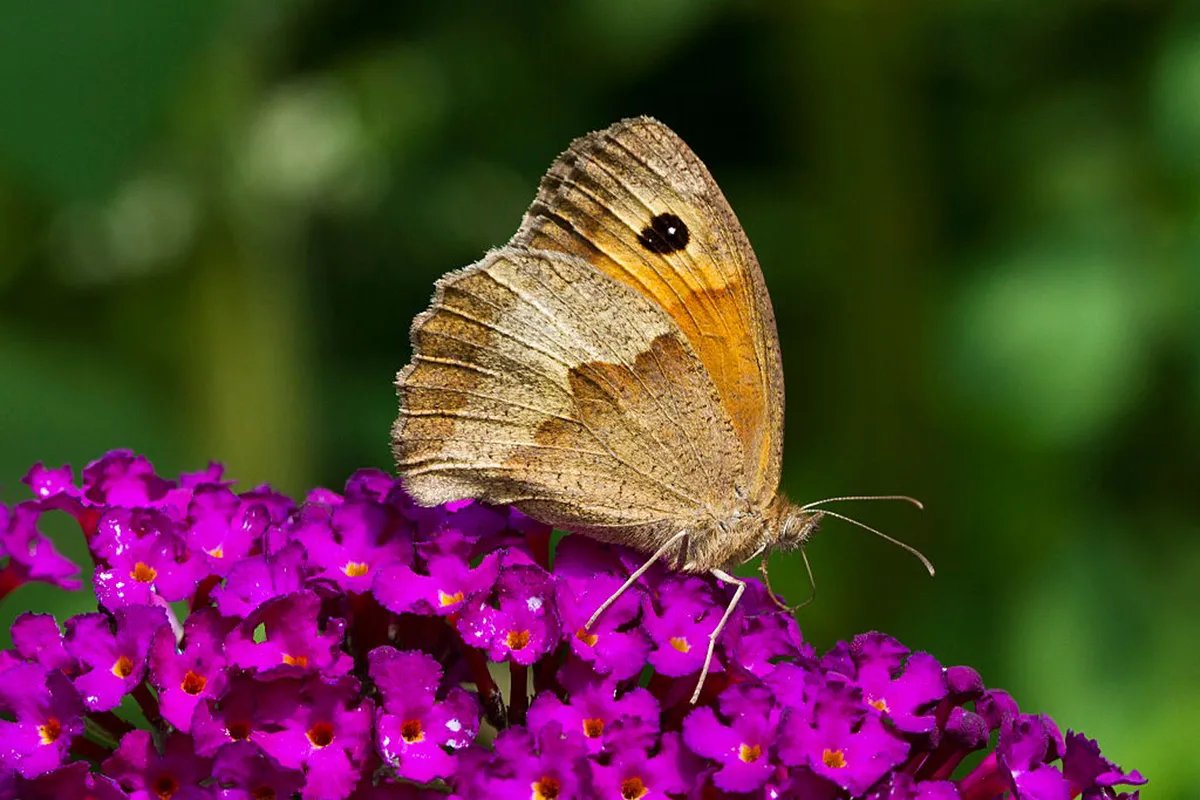While we may welcome a summer heatwave during the British holiday season, for our garden wildlife it can be a challenging time, as dehydration and heat exhaustion in extreme weather can be deadly.
Just as we enjoy a cold drink or dunking our feet in a paddling pool to cool off – so do our garden birds, hedgehogs and pollinators such as bees and butterflies. Simple actions, such as providing access to fresh, clean drinking and bathing water and some shade can make a huge difference to wildlife.
Hedgehogs
Hedgehogs are vulnerable mammals during the summer, with the British Hedgehog Preservation Society (BHPS) noting the influx of calls to report dehydrated hedgehogs. Fay Vass, Chief Executive of BHPS, said: “With the very hot dry weather hedgehogs and other wildlife are struggling to find natural sources of water, and the ground is so dry and hard that their natural food is hard to come by too.” Make sure to leave small bowls of water out. It's recommended that you only leave out food for hedgehogs (consisting of wet, meaty cat or dog food) in the winter.

Hedgehogs don’t sunbathe!
The British Hedgehog Preservation Society has issued a plea for people to keep an eye out for hedgehogs in need of help.
Hedgehogs are nocturnal so should not normally be out in the daylight. There are some exceptions to that rule, for example if a nest has been disturbed and the hedgehog is relocating, or if a busy mum is taking a break from the nest. However, these hedgehogs would be moving quickly ‘with purpose’.
If you find a hedgehog in need of help the Society suggest you use gardening gloves or an old towel to collect the animal, placing it inside a high sided cardboard or plastic box with the towel or an old t-shirt in the bottom for it to hide under. Bring the box indoors away from flies. Offer some meaty cat or dog food and water but don’t force feed it.
Once you’ve done that, call a local hedgehog rescue centre if you know of one, or BHPS on 01584 890 801 for further advice and local contacts.
Birds
Water baths are great for wild birds, as they can cool down in the water and drink it. Plus, they can provide much-needed water for other small animals with access. Bird feeders are also useful additions to your garden or, alternatively, you can scatter a few seeds for them to eat.

Read more
- How safe are garden bird feeders? Their threat to finches leads the RSPB to suspend sales of flat tables in wake of huge declines
- The best food for feeding wild birds
Bees
In warm weather, bees sometimes become exhausted and may lay on the ground to recover. You can help them by gently putting them on a flower so they can feed on nectar and keeping any pets or people away from them. Feeding tired bees with a water and sugar solution is largely a myth and should only be attempted as a last resort.
However, planting lots of nectar-rich flowers in your outdoor space (where possible) is the best way to prevent bees from becoming too tired.

Read more
- Best plants for bees and butterflies
- Don’t mistake deadly invasive hornet for native endangered insect that mimics it, warn experts
- 2024 was one of the worst years on record for butterflies, new data shows – here’s why
Butterflies
Unlike other animals and insects, butterflies thrive in summer heat. However, you can still help the butterflies in your garden by planting flowers which produce a lot of nectar. These include buddleja, verbena, lavender and nasturtium.

Aquatics
If you have a fish pond in your garden, make sure to keep the water clean and ensure the water isn’t dense with weeds. Providing some shade over the pond can also help to cool the water down, but maintain as much light as possible to encourage water plants to grow.
Read more
Discover more gardening ideas
- How to encourage kids to grow their own vegetables
- 20 easy garden projects
- How to make your garden insect friendly
- These are the easiest ways to save water in your garden
Main image: Male sparrow drinking water. Credit: Getty.